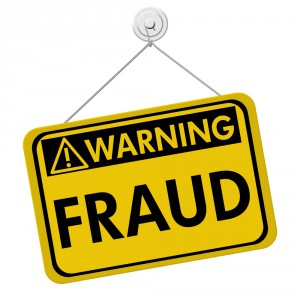 The securities attorneys at Gana Weinstein LLP are investigating potential claims against former Capital Securities Management Inc. broker Teryl Trenchard (Trenchard). According to Trenchard’s BrokerCheck records, he was identified in a Financial Industry Regulatory Authority (FINRA) investigation on March 10, 2017. FINRA is examining alleged fraudulent activities of Trenchard.
The securities attorneys at Gana Weinstein LLP are investigating potential claims against former Capital Securities Management Inc. broker Teryl Trenchard (Trenchard). According to Trenchard’s BrokerCheck records, he was identified in a Financial Industry Regulatory Authority (FINRA) investigation on March 10, 2017. FINRA is examining alleged fraudulent activities of Trenchard.
Trenchard was terminated by Capital Securities Management on March 10, 2017 based upon the FINRA investigation for fraud.
In a pending customer complaint, it has been alleged that Trenchard engaged in misappropriation, forgery, fraud and unauthorized trading in unsuitable transactions between 2005 and 2017. The alleged damages are $1,800,000.
In another pending complaint, a customer is alleging breach of fiduciary duty, breach of contract, conversion, and unsuitable investment recommendations. The customer is alleging damages of $700,000.
In 2000, a customer alleged that Trenchard made several unauthorized trades in her account. This complaint settled for $28,049.49.
The term “securities fraud” covers a range of illegal activities involving the deception of investors or the manipulation of the financial markets. Fraud includes false representations, unauthorized trading, value manipulation, and Ponzi schemes. Investors are protected against fraudulent securities activities by several different civil laws.
First, the Securities Exchange Act of 1934 (15 U.S.C. § 78a et seq.) and Rule 10b-5 protect investors against deceptive and manipulative acts in the purchase or sale of securities. This sweeping legislation is the cornerstone of federal securities laws. Rule 10b-5 makes it unlawful to employ a device or scheme to defraud, to make any untrue statement of material fact or omit to state a material fact not misleading, or to engage in any practice that would operate as a fraud.
Second, the vast majority of states have passed “blue sky” laws that regulate the securities industry in each state and protect investors. Even if a state has not enacted specific securities laws, an investor can still pursue a claim under theories of common law fraud.
Third, investors can pursue claims against a broker or a brokerage firm under the rules of the Financial Industry Regulatory Authority (FINRA), including its anti-fraud provisions. The FINRA rules have several provisions pertaining to fraud including IM-2310-2 (covering churning, false accounts, unauthorized trading, and misuse of customer funds) and Rule 2210 (covering communications with the public).
Trenchard entered the securities industry in 1997 and was associated with J.C. Bradford & Co. until 2000. From 1999 to 2000, he was associated with Prudential Securities Incorporated. From 2001 to 2003, Trenchard was associated with Voss & Co., Inc. From 2003 to 2009, he was associated with Aegis Capital Corp. Finally, he was associated with Capitol Securities Management, Inc. from 2009 until March 2017 when he was discharged.
The dedicated attorneys at Gana Weinstein LLP represent investors who have suffered losses due to securities fraud. The majority of these claims may be brought in securities arbitration before FINRA. Our consultations are free of charge and the firm is only compensated if you recover.
 Securities Lawyers Blog
Securities Lawyers Blog


